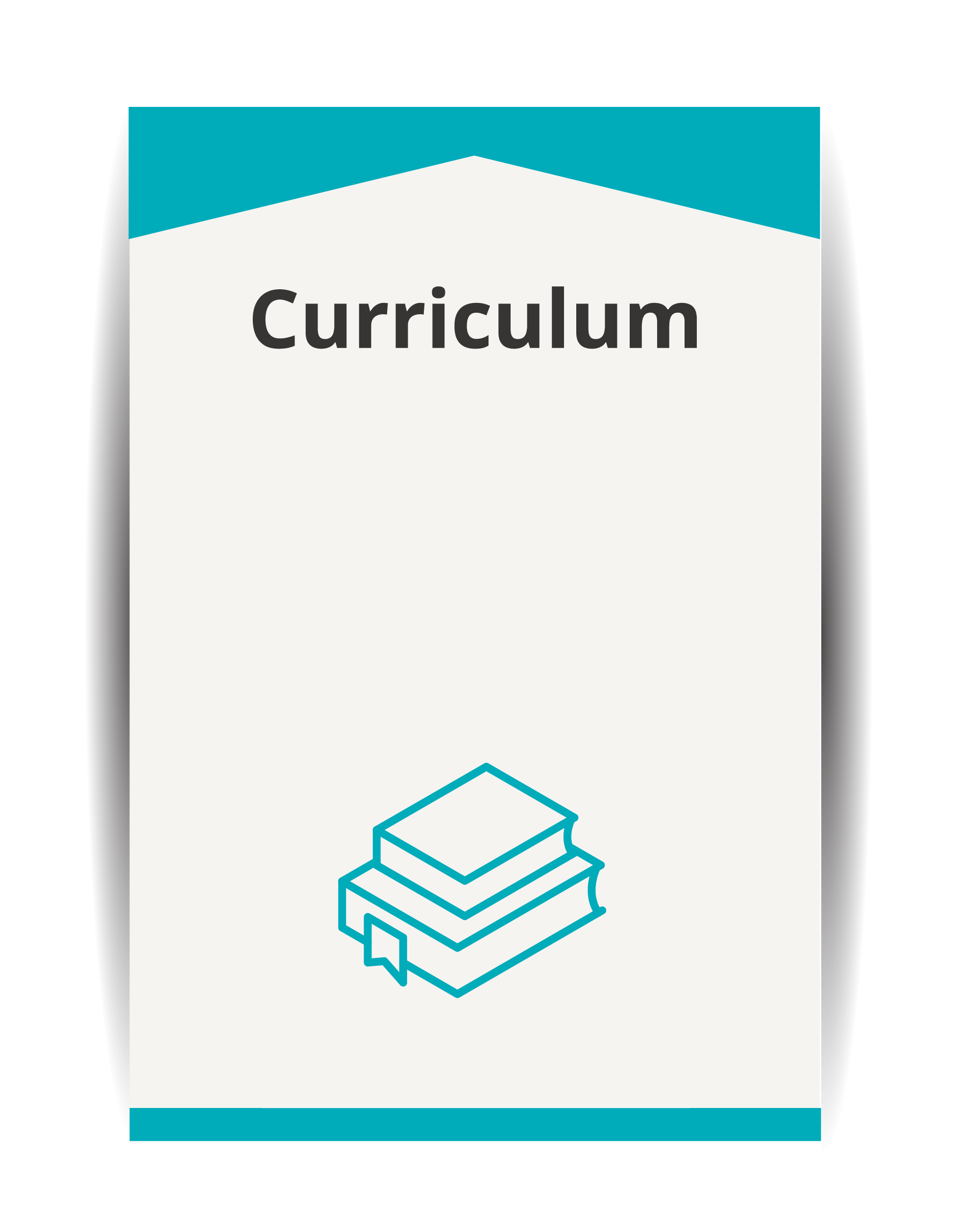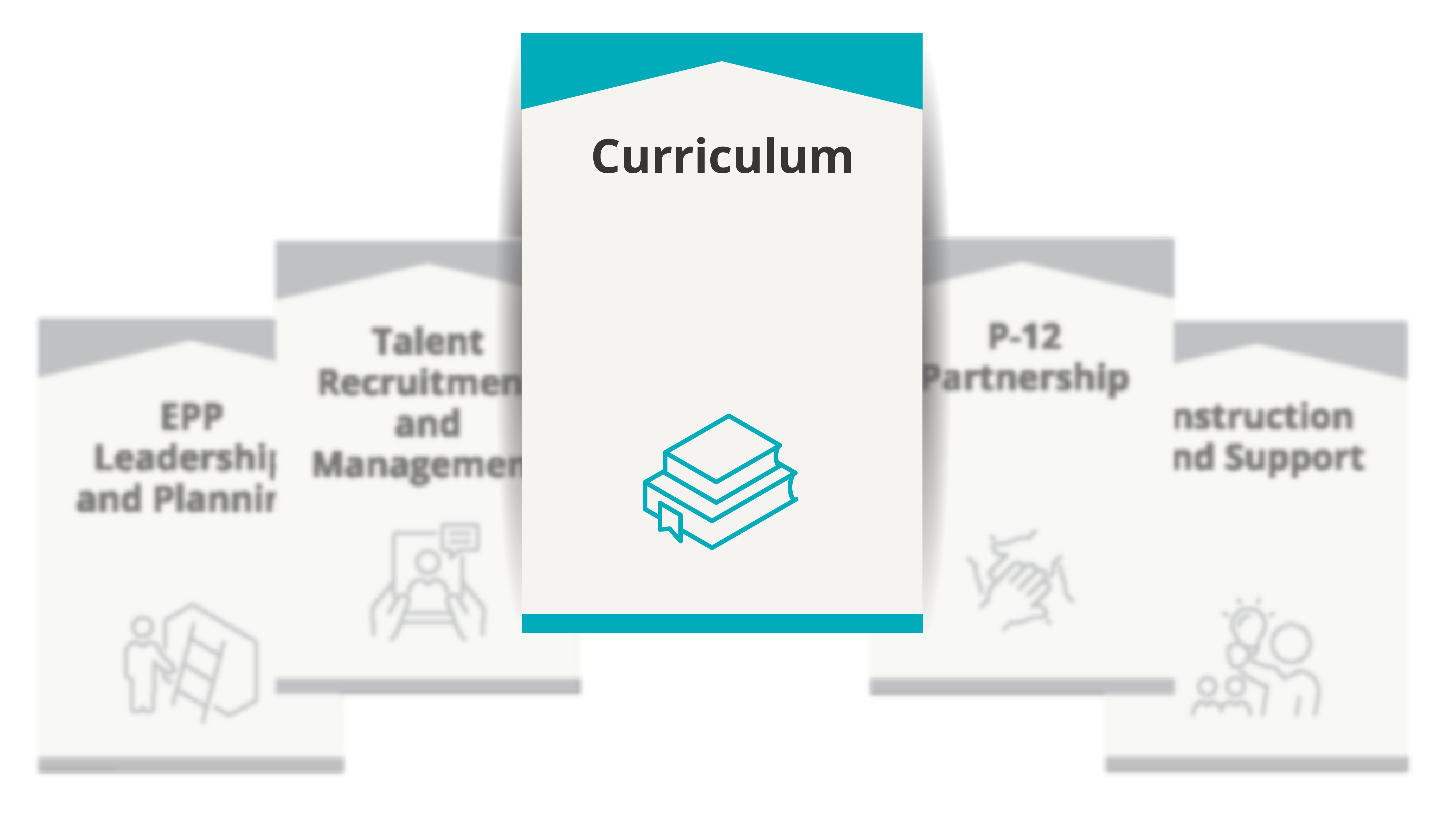Essential Actions
Essential Actions describe what the most effective EPPs do to support powerful educator preparation.
Essential Action 1
Standards-Aligned Curriculum
Program develops standards-aligned curriculum grounded in research-informed, evidence-based, and standards-based instructional practices for various learning environments.
KP 1.1
Purposefully sequences to build from basic skills to more complex ones and reflects the iterative nature of learning to be an effective teacher.
KP 1.2
Prepares teacher candidates in the foundations of instructional delivery, supporting them to adapt, plan and/or internalize, and deliver lessons that are standards-based, data-informed, relevant, and differentiated to engage and support all students.
KP 1.3
Prioritizes teacher candidate development in the highest leverage instructional practices (i.e., use of formative and summative assessment practices, student questioning, etc.) to provide engaging, differentiated, and rigorous instruction that improves student outcomes.
KP 1.4
Uses relevant and rigorous subject matter content grounded in the TEKS to promote teacher candidate development in the highest leverage instructional practices and content-specific pedagogy.
KP 1.5
Builds teacher candidates’ curriculum and assessment literacy by developing their awareness, understanding, and use of high-quality K-12 instructional materials and aligned assessments.
KP 1.6
Integrates ethical and professional standards that support teacher candidates to become ethically responsible, collaborative, student-centered educators through reflection and professional growth.
Essential Action 2
Integration of Practice-Based Experiences in Curriculum
Program integrates intentional practice-based experiences throughout the curriculum and embeds meaningful opportunities for teacher candidates to practice skills via analysis, representation, and enactment of teaching.
KP 2.1
Includes integrated opportunities for practice in increasingly more authentic and developmentally rigorous ways throughout the curriculum, including analysis (i.e. examining teaching/instruction), representations (i.e. role-play/engagement with illustrations of instruction), and enactments (i.e. teaching) of instructional pedagogies, and includes opportunities for teacher candidates to self-reflect, ask questions, and adjust practice based on feedback from field supervisors, mentor and cooperating or host teachers, and campus leadership.
KP 2.2
Includes structured opportunities to practice curriculum-based lesson planning/internalization, delivering instruction, and administering and analyzing assessments using high-quality K-12 instructional materials.
KP 2.3
Structures early practice-based experiences, such as field-based experiences, to provide teacher candidates with opportunities to work with diverse student populations in multiple classrooms across the grade bands for which they are seeking certification.
Essential Action 3
Coursework on Meeting the Needs of All Students
Program designs the curriculum to effectively prepares teacher candidates to meet the academic and developmental needs of all students.
KP 3.1
Develops teacher candidates' understanding of, and application of principles from, the cognitive and developmental needs of all students.
KP 3.2
Includes evidence-based practices for building positive relationships with students and families to develop a comprehensive understanding of their prior academic learning and assets (i.e., strengths, individual experiences, interests, and culture).
KP 3.3
Includes evidence-based practices for providing safe, supportive, inclusive, and academically challenging learning environments.
KP 3.4
Prepares all teacher candidates to understand and use evidence-based practices to meet the needs of emergent bilingual students, multilingual learners, gifted learners, and students who receive special education services or with a 504 plan.


